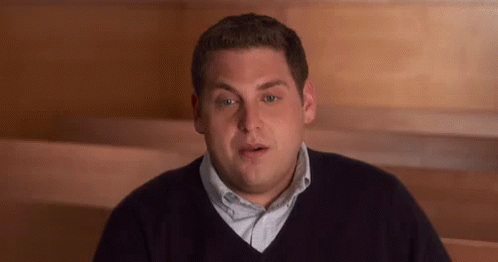
We all know a control freak. Maybe it's you!
By Linda and Charlie Bloom — Written on Dec 13, 2016
Photo: weheartit

You know them. You may even live with them. You deal with them every day. You may be married to one. You may even be one. They are the dreaded control freaks. Actually, a more accurate pronoun to use than “them” is “us” since, like it or not, we are all members of the same clan.
We all want to control our environment, our relationships, our experience, and our world. Put another way, we all have our ways of trying to manage our lives in ways that promote safety, pleasure, and happiness and minimize or eliminate pain, danger, and suffering.
Some of us do it overtly, using obvious means of control and manipulation like intimidation, issuing threats, making demands, pleading, and non-stop talking. Others use less obvious, more covert means of control, including passive-aggressiveness, going silent, accommodation, withdrawal, flattery, and helplessness.
The drive to maximize pleasure and minimize pain is inherent to the human condition and is operative in various forms in all of us. There is nothing intrinsically pathological or shameful about having a predisposition towards these inclinations.
There are, however, a great many strategies for acting out these impulses, some of which are more skillful than others. It should also be noted that there is a significant difference between controlling one’s life circumstances and managing them.
One of the key elements that people who are successful in minimizing pain and maximizing pleasure is the understanding and acceptance of the fact that life inevitably involves experiences that bring both suffering and pleasure to everyone. These experiences take a variety of forms and show up in a multitude of ways, some of which are planned and anticipated, some not.
We use the word “luck”, good or bad, to characterize experiences to which we can’t link causal factors. But in truth, even those situations which we think have been caused by our efforts aren’t necessarily a result of the factors that we hold responsible for them occurring.

Photobucket
There’s an old story about a man sitting on a park bench, shredding newspapers and tossing the pieces over his left shoulder. A policeman who has been watching him approaches after several minutes and asks him why he’s doing what he’s doing.
“This keeps away the lions,” the man replies.
“Lions?” said the officer. "The closest lions are thousands of miles from here.”
“I know,” said the man. “See? It works!”
Like the man in the story, it’s often the case with many of us that we believe that it is because of our efforts to control things, through whatever means we have chosen to do so, that things go the way we want them to, and if they don’t, we are likely to conclude that the result has occurred because we didn’t do it well enough, long enough, hard enough or adequately enough to bring about our desired outcome.
We gather what we consider to be “evidence” that validates our belief that it’s because of our efforts to protect ourselves by being in control that we’re safe and happy. We believe that as long as we can continue to be successful in keeping the lions away by doing what we think is necessary we will get what we want and avoid what we don’t want.
In reality, our so-called “control” is actually a belief that has created the illusion of control.

GifWave
In the domain of relationships, control-freak behaviors, both overt and covert, not only fail to provide the security that we crave, but serve to perpetuate and even amplify the insecurity and disharmony that we seek to eliminate. Beliefs have a tendency to not die easily.
Many of us carry these attitudes and behaviors with us throughout our lives, mistakenly believing that while things may not be going exactly the way we would like them to, the fact that they are going at all is due to the efforts that we’re making to stay in control. Possessed by this belief, it’s difficult for us to challenge our thinking or recognize that it’s a belief that isn’t grounded in reality. Consequently, we keep reaffirming this thinking and become addicted to reinforcing it by whatever means necessary.
Until we can break free from our addiction to controlling behaviors, the possibility of genuine intimate connection in our relationships remains an extremely unlikely prospect for us. True intimacy depends upon both partners feeling safe, trusted, trusting, unthreatened, accepted, and cherished.
These feelings are all incompatible with the emotions that are generated when we sense that our partner has other, particularly covert agenda in their motivation in doing and saying the things that they are giving to us in our relationship.
Operating from an intention to control, rather than an intention to connect, prevents us from having the kind of experience with others that we most deeply desire. Until we are willing and able to risk the kind of vulnerability and openness that deep connection requires, our controlling behaviors will impede rather than enhance our ability to be fully available to others.

Tumblr
Yet despite our conscious desire to be more open and less controlling, most of us seem to be run by our history. This doesn’t mean that we are doomed to forever be at the mercy of habituated behavior patterns. But it does mean that the process of becoming free will more likely than not take more time, energy, and patience than we think that it should. Breaking lifelong habits takes time. We can’t “just get over it.”
In working to neutralize our compulsive control freak tendencies we become increasingly liberated from defensive patterns that inhibit our capacity for close, deep connection. This requires us to become receptive to whatever is generated within us when we connect to our partner. It means that we simply allow our feelings to be, whatever they are, rather than reacting with attachment (if they are pleasurable) or aversion (if they are not).
Complaints or grievances expressed by our partner can activate an impulse to control. In the mind of the frightened controller, if our partner is unhappy with anything in her life, it often is interpreted as a reflection of some kind of inadequacy or failing within ourselves, particularly if we hold the belief that we are responsible for her happiness.
In such cases, hearing our partner’s concerns can activate distressful feelings that are likely to prompt efforts to invalidate their experience. Examples of these efforts include arguing, intimidation, guilt tripping, ignoring, or avoiding. We may believe that the security of our place in the relationship depends upon our ability to adequately provide for the needs and desires of our partner.
Anything that calls this into question can provoke feelings of anxiety and insecurity that can quickly turn into controlling behaviors. In recognizing these defensive patterns within ourselves, we shift the focus of our attention away from our partner.
Related Stories From YourTango:
This enables us to become more able to resist the temptation to counterattack when we fear that our security is being threatened.

Tenor
There is only one bottom line answer to the question of why control freaks control: We are afraid. It feels safer to do something, anything, rather than just sit there feeling unprotected and helpless. It is by becoming more courageous, by standing strong on the only absolutely safe and solid ground that exists in our life, that we find the courage that true vulnerability requires. That ground is the truth of our own experience.
Our tight-fisted grip on control eases and softens in the experience of authentic presence; naturally, effortlessly, and inevitably. And as it does, we create a space of safety, openness, and possibility, a sanctuary that is a haven not only for ourselves but for our loved one as well.
Such a place is nearly irresistible and profoundly compelling. In this place the need for control dissolves since there is no cause for concern. We’re safe and connected to our self and to each other. Welcome home.
.......
If you like what you read, click here to visit Linda and Charlie Bloom's website and subscribe to receive our free inspirational newsletters.
More for You:
This article was originally published at Psychology Today. Reprinted with permission from the author.
